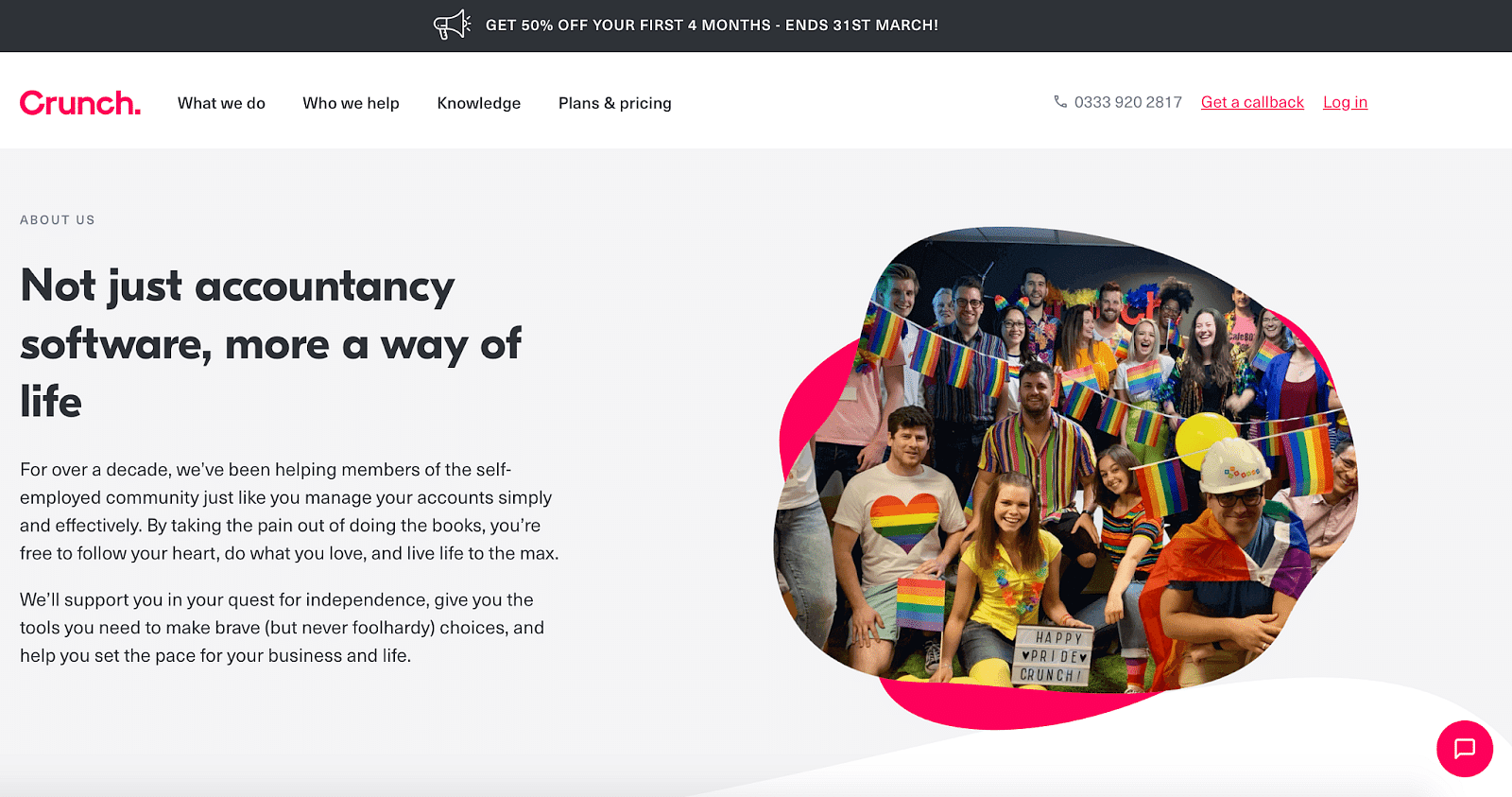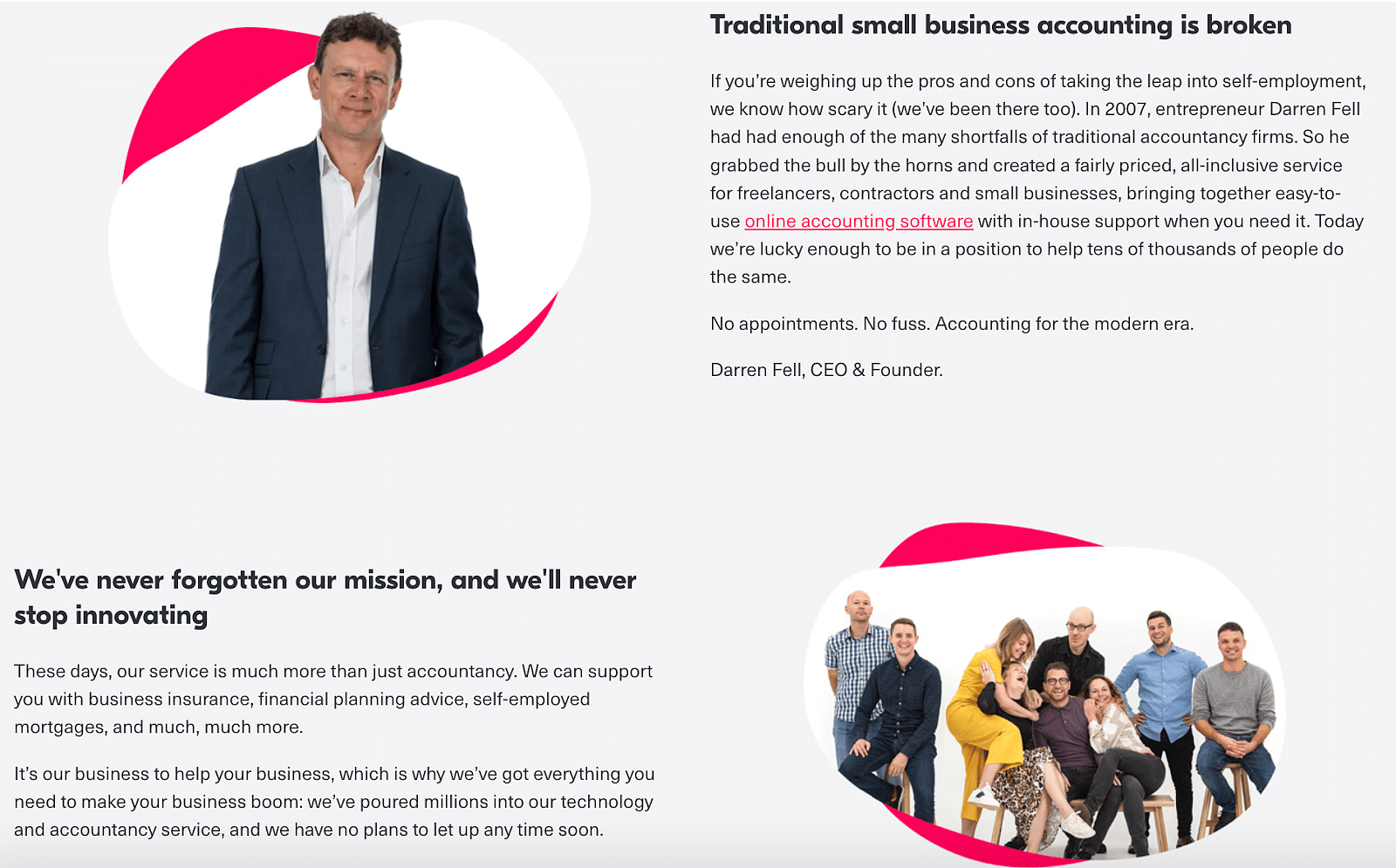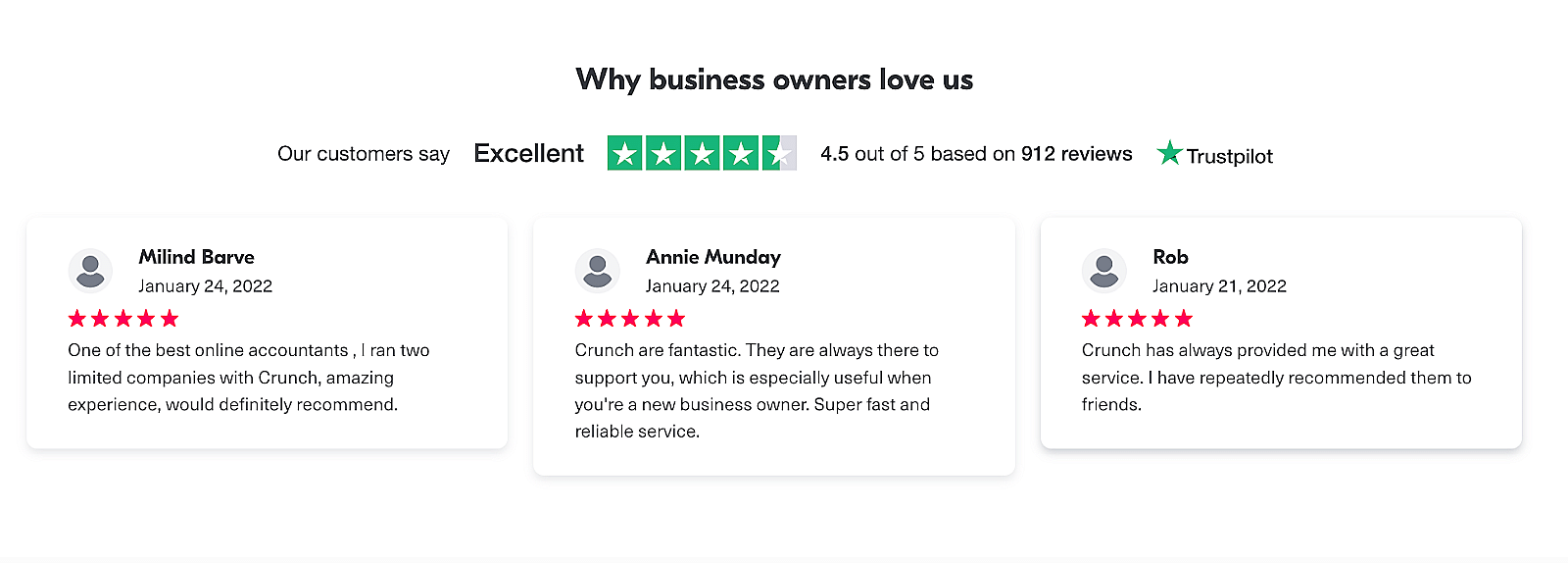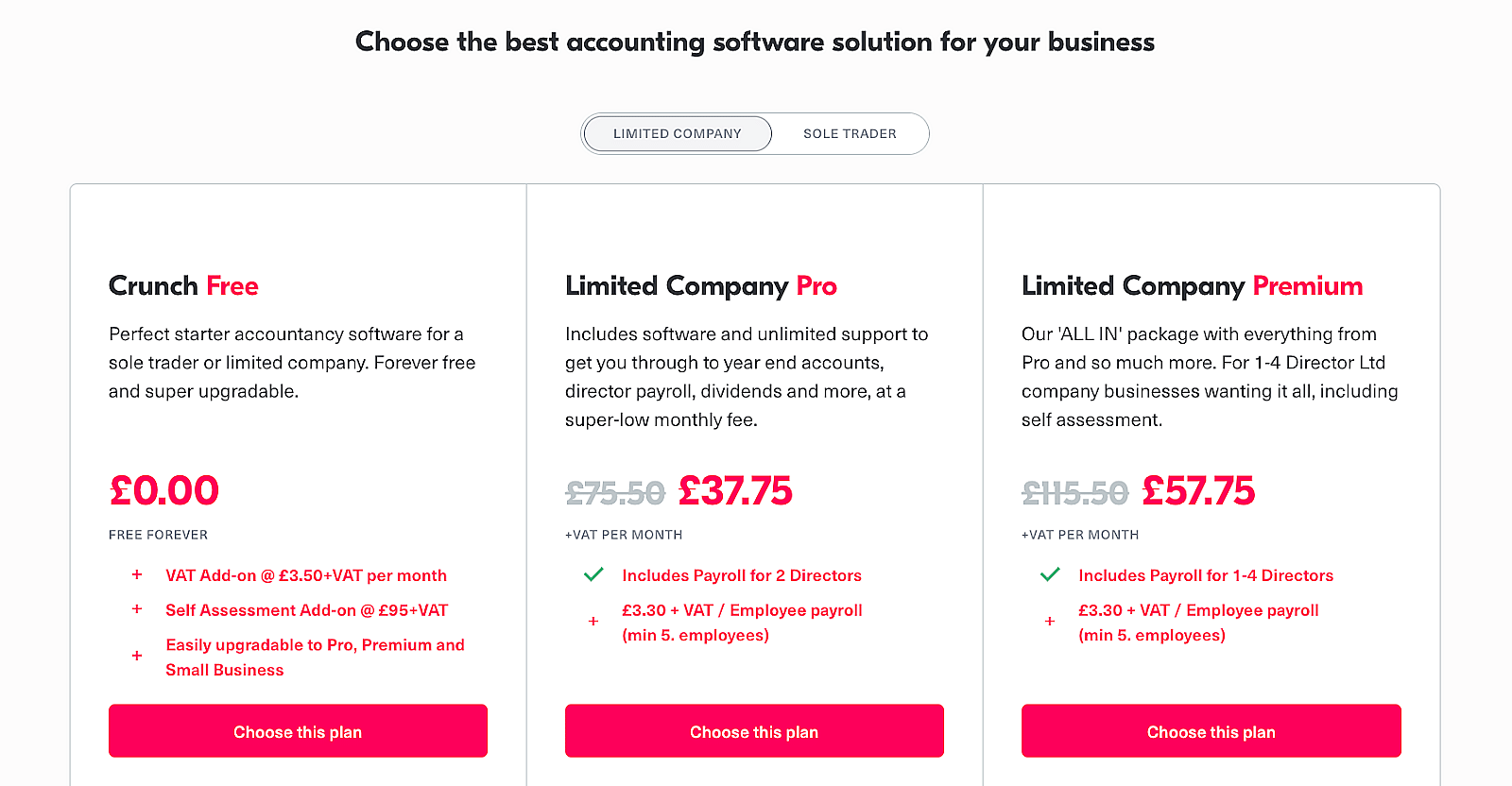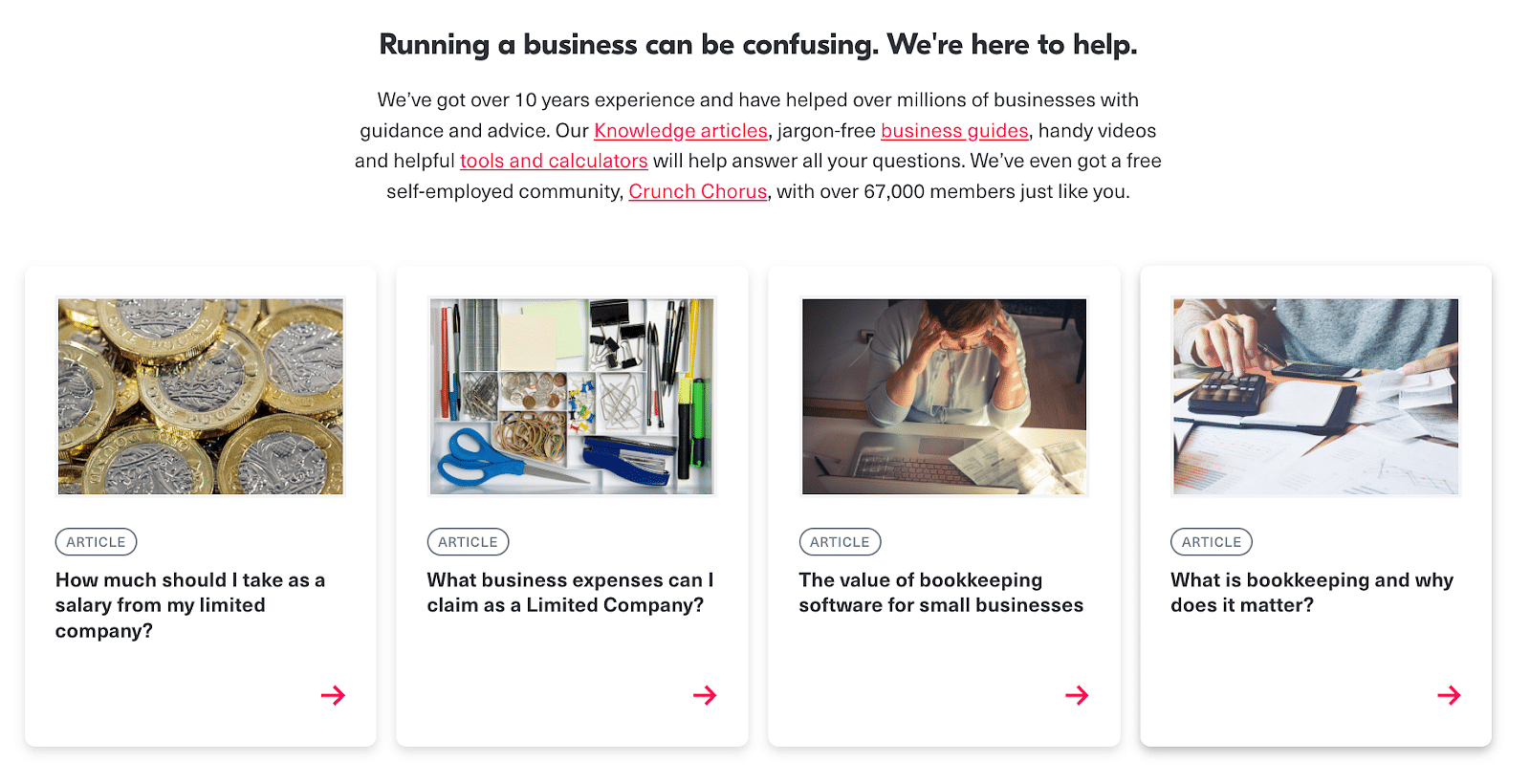
Why storytelling matters: A look into how an accountant used his story to build his Crunch business
By Jim James, Founder EASTWEST PR and Host of The UnNoticed Entrepreneur.
Through my podcast, The UnNoticed Entrepreneur, I share tools and thoughts with you that might help you to build your brand. In the recent episode, I wanted to share what I’ve learned from using the Crunch software. This all boils down to the whole idea of storification. This accounting firm is a great example of how the founder can display their own story — and make their customer a hero of that story.
The episode was a short piece of insight on what I’ve discovered by using that new accounting software. And who would’ve thought that using accounting software could actually teach you something over and above money?
The Problem that Crunch is Solving
Crunch.co.uk is a service provider. And the reason I think it’s interesting is that they have really been working to separate themselves from accounting firms and software companies like Xero and Sage.
As a small business owner myself, I’ve been looking to find alternatives to Xero for many years. Having laboured with zero accounting partners (forgive the pun there) — or, rather, having accounting partners that use Xero, I should say — and trying to get these third parties to use that software and then to do the accounts, I was about to run out of patience with that.
Then, I saw an online ad for Crunch. And if you go to their website, you’ll see that they’ve really got the narrative down.
Screengrab from Crunch
I’m sharing this because you have to think about your own company and your own journey — How have you solved a problem for yourself, which you’ve eventually turned into a business?
In 1993, when I was looking to appoint a public relations firm in Asia (I went out to Singapore and Hong Kong), I wasn’t impressed by any of the agencies and their consultants. That was really the genesis of EASTWEST Public Relations. I went to Aisa to start the company that I needed.
You may also be doing the same thing. Most, if not all companies, have started, in one way or another, because the founder was solving a problem.
If we look at David Brown Santasalo, which is a large engineering company, it originally started because David Brown (who is one of the founders) was trying to solve engineering problems affecting, for example, the cooling for tanks. And it was about using the same fin wheels that they’ve developed for their tractors.
Another example is H.F.S. Morgan who started building three-wheelers to get to work over at the Malvern Hills when he was working in a bus factory. People then asked him if they could build them one of the three-wheelers. That started what is now known as the Morgan Motor Company.
Coming back to Crunch, a guy named Darren started this business in 2007.
On their website, it says: “...entrepreneur Darren Fell had had enough of the many shortfalls of traditional accountancy firms. So he grabbed the bull by the horns and created a fairly priced, all-inclusive service for freelancers, contractors and small businesses, bringing together easy-to-use online accounting software with in-house support when you need it. Today we’re lucky enough to be in a position to help tens of thousands of people do the same. No appointments. No fuss. Accounting for the modern era.”
Screengrab from Crunch
There’s the journey of their original founder about the problem that he was trying to solve for himself. On the website, they articulated that as being the business’ genesis. They also wrote about what it’s going to mean for the tens of thousands of people like myself who have become customers.
The Anatomy of Crunch’s Website
On their website, they address this issue that I talk about, which is the storification of your business. How do you make the genesis of your business into a story that demonstrates to your customers that you understand their problem? This is what Darren is really explaining on his website.
They also say that, “We've never forgotten our mission, and we'll never stop innovating.” They continue: “These days, our service is much more than just accountancy. We can support you with business insurance, financial planning advice, self-employed mortgages, and much, much more.”
The idea here is that they started with one simple problem to solve and then they recognised that those problems have all something to do with money. Every entrepreneur and every business owner is ultimately dealing with money issues.
What Crunch did just below that section is to use Trustpilot, which is social proof. Why do business owners love them? They have 4.5 as the average score and they have over 910 reviews. It’s nearly up to 1,000 and that is just as of January 2022.
Screengrabs from Crunch
Then, they have the pricing. There’s Crunch Free, which they describe as the “perfect accountancy software for a sole trader or a limited company.” It’s free forever. Then, you have the Limited Company Pro for £37.75 and the Premium for £57.75.
Having paid £150 a month to another accounting firm plus the Xero fee worth £35 (I spent nearly £200 a month), I opted for the Limited Company Pro package.
What we’re seeing on Crunch’s homepage is the story of the founder and a recognition of what the business is actually about: solving money problems, not just accounting problems. Then they also have social proof and articles about how you can solve problems. The website also talks about having a self-employed community called Crunch Chorus, which has “over 67,000 members just like you.”
Screengrab from Crunch
The Importance of Storification
I think it’s a really interesting website and I’m enjoying the service already — the responsiveness, the support, and the chat online. But the real reason I wanted to raise Crunch is because of the importance of the story for your business (as I’ve mentioned on more than one occasion) and wrestling a little bit with it: Whose story is it?
What we’ve learned from people like Park Howell is that the business owner is really the mentor. It’s our role to use our experience to help our customers solve their problems. And the most authentic and appealing story that the customers are going to hear is that we as business owners have lived through that problem ourselves and solved it.
If you look at your website, PR, and social media, ask yourself: Are you sharing your own story? Or has it become diluted?
Now, I see how many companies have become more and more corporate. They’ve become more and more distanced from the original founders (Though it could be that the founders are no longer involved). Companies have also moved farther and farther away from what was the original vision of the company.
As we reevaluate our own marketing materials and as we grow the company, there’s still a place for the founder’s story — as we’re seeing with Crunch. As long as it transitions into how that story has created a business that’s dedicated to solving the customer’s problem, then the customer becomes the hero of the business and not the founder.
Image from Unsplash
You have to walk through this idea of storification — of how you make a story from how you started your business. Then, you have to acknowledge that the role that we have as business owners is to facilitate the success of our customers through the journey that we’ve been through ourselves. When we look at our marketing, the question is: Are we doing that or not?
Wrapping Up
The latest episode of my podcast was just a short piece. I’ve got some great interviews coming up and amazing guests from around the world who’ll share more about content creation, social media, and all manner of great stuff.
In the episode, I discussed what Crunch has written about themselves. And I shared it because it really identifies with one of the points that I’ve been talking about (which is also included in my book, The UnNoticed Entrepreneur): the need to create a story; how the role of the business owner is to be the mentor and how the role of the customer is to be the hero. As entrepreneurs, our role is to help our customers overcome their own challenges by the services that we can provide.
This article is based on a transcript from my podcast The UnNoticed Entrepreneur, you can listen here.
Cover image by Volkan Olmez on Unsplash

